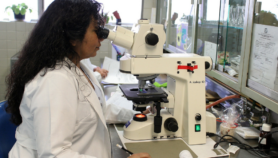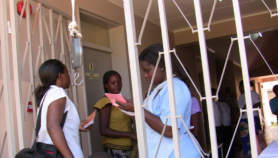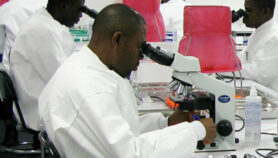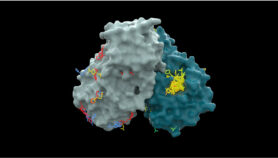By: Laura Owings
Send to a friend
The details you provide on this page will not be used to send unsolicited email, and will not be sold to a 3rd party. See privacy policy.
[CAPE TOWN] A collaborative research fund between South Africa and the United Kingdom has set aside 140 million rand (about US$11.5 million) a year towards science and technology research as part of a five-year initiative.
The UK-South Africa Newton Fund supports joint initiatives that contribute local development, and was launched this month (9 September) in Cape Town, South Africa.
“The fund focusses on the active involvement of industry to ensure our science, technology and innovation investments contribute to economic growth and employment creation,” said Naledi Pandor, South Africa’s science and technology minister, in a statement.
“The plan is for the UK-South Africa Newton Fund to have significant regional impact, working in partnership with South Africa across Sub-Saharan Africa in developing their science base.”
Laura Harris, The UK High Commission in Pretoria, South Africa.
Pandor added: “Without the training of the next generation of scientists and engineers, neither of our countries will achieve their ambitious objectives for increasing knowledge-based scientific activities”.
According to the statement, the collaboration will target research areas such as public health, environment and food security, and science and technology capacity building, adding that it will focus on activities that have a regional footprint, including research in other African countries.
Some cooperation initiatives planned under the fund were announced during the launch, the statement added. These include a scheme for the medical research councils of both countries to provide 90 fellowships and 150 mobility grants to boost socio-economic development.
“The plan is for the UK-South Africa Newton Fund to have significant regional impact, working in partnership with South Africa across Sub-Saharan Africa in developing their science base,” said Laura Harris from the UK High Commission in Pretoria, South Africa, during the launch.
The fund highlights the value of international research for development, according to Dan Stein, head of the University of Cape Town’s Department of Psychiatry and director of the collaborative research programme, the Brain and Behaviour Initiative.
“There is growing recognition that research is key for development, and local research is crucial,” Stein adds, noting that 90 per cent of existing research have been conducted in places where only 10 per cent of the global population live.
Stein explains that the bulk of research tend to focus on Westernised, educated, industrialised, rich and democratic populations.
“There are many [research] questions … to ask and answer locally. International collaboration has been very useful in getting some of this research done,” Stein says.
The Newton Fund builds on a bilateral agreement on science and technology cooperation signed by South Africa and the United Kingdom in 1995. According to Harris, it is a significant development for international collaboration.
“Traditionally the United Kingdom has only had small-scale bilaterally focussed science and innovation funds, especially compared to other countries such as France and Germany,” Harris adds. “This is the first time there has been a fund of this scale, both in terms of its bilateral focus but also in terms of its focus on science and innovation capacity building in partner countries.”
This article has been produced by SciDev.Net's Sub-Saharan Africa desk.














